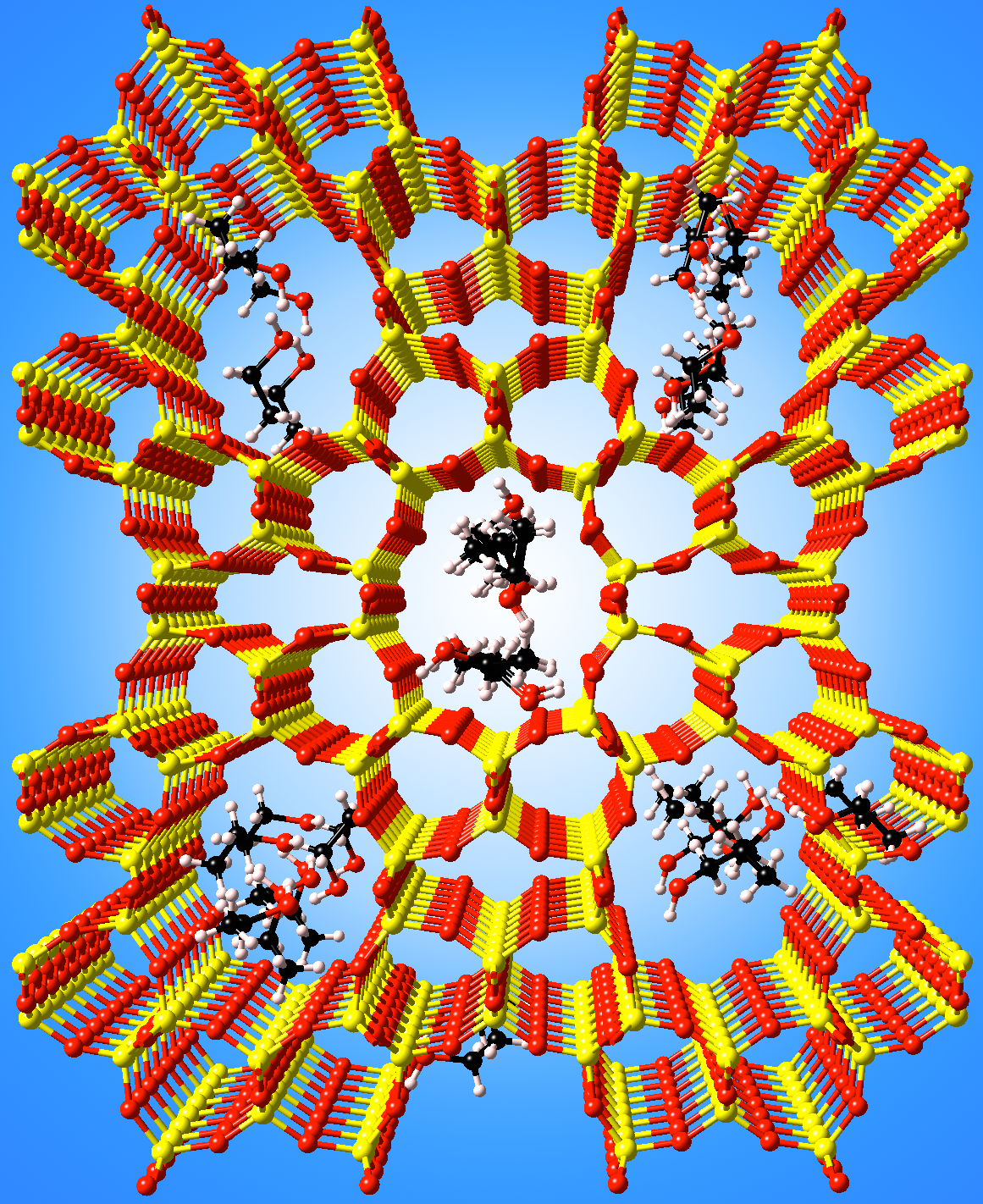MedeA Docking Create Host-Guest and Surface-Guest Models
At-a-Glance
MedeA ®[1] Docking automatically creates, adjusts, and refines host-guest and surface-guest systems. Employing the well-known Metropolis Monte Carlo algorithm [2], MedeA Docking evaluates van der Waals interactions to generate and assess stable system configurations. The resulting host-guest structures may then be employed in forcefield and first-principles based simulations. MedeA Docking can be invoked interactively within the MedeA Environment or by using MedeA Flowcharts on the JobServer. MedeA Docking is a building tool that allows you to combine systems automatically to create the starting points for further simulation studies.
Key Benefits
- Saves time through accelerated and automated model construction and refinement
- Simplifies automated Flowchart based model construction for screening, allowing construction of host-guest and surface-guest systems without interactive manipulation
- Explores multiple guest configurations, searching and evaluating many possible binding configurations

Alcohol molecules docked in a microporous material using MedeA Docking.
Key Features
- Automatic combination of host and guest structures
- Minimization of steric overlap between host and guest
- Automated energy based refinement of sorbate position and orientation
- Interactive screen updates, and full user control of model view and scale during docking
- Control of simulation length, Monte Carlo temperature, maximum position, and rotation displacements
- Combination of multiple sorbates with host structure
- Employs Metropolis Monte Carlo Algorithm, allowing user control of the employed search (via control of acceptance probability within the temperature setting)
- For use with surface, microporous, and porous materials models
‘I will say that enzyme and glucoside must fit together like lock and key in order to be able to exercise a chemical action on each other’
Emil Fischer, 1852-1919
Required Modules
- MedeA Environment
- MedeA JobServer and MedeA TaskServer
Find Out More
To learn more about the use of docking to provide insights into host-guest interactions in materials science, see the following papers on the following topics:
- General host-guest interactions [3],
- Understanding templating with organic additives [4],
- Simulating CFC interactions [5], and host-guest
- Interactions in isomerization [6].
Watch this webinar to learn more about atomistic simulation using the MedeA Environment:
| [1] | MedeA and Materials Design are registered trademarks of Materials Design, Inc. |
| [2] | N. Metropolis, A.W. Rosenbluth, M.N. Rosenbluth, A.H. Teller, E. Teller, “Equations of State Calculations by Fast Computing Machines”, J. Chem. Phys. 21, 1087 (1953) |
| [3] | C.R.A. Catlow, J.M. Thomas, C.M. Freeman, P.W. Wright, R.G. Bell, “Simulating and predicting crystal structures”, Proc. R. Soc. Lond. A 442, 85 (1993) |
| [4] | D.W. Lewis, C.M. Freeman, C.R.A. Catlow, “Predicting the templating ability of organic additives for the synthesis of microporous materials”, J. Phys. Chem. 99, 11194 (1995) |
| [5] | A.R. George, C.M. Freeman, C.R.A. Catlow, “A computational investigation of zeolite-chlorofluorocarbon interactions” Zeolites 17, 466 (1996) |
| [6] | P.T. Tschaufeser, C.M. Freeman, “Computer simulation studies of the selectivity of zeolites for different butene isomers” Catal Lett. 60, 77 (1999) |
| download: | pdf |
|---|